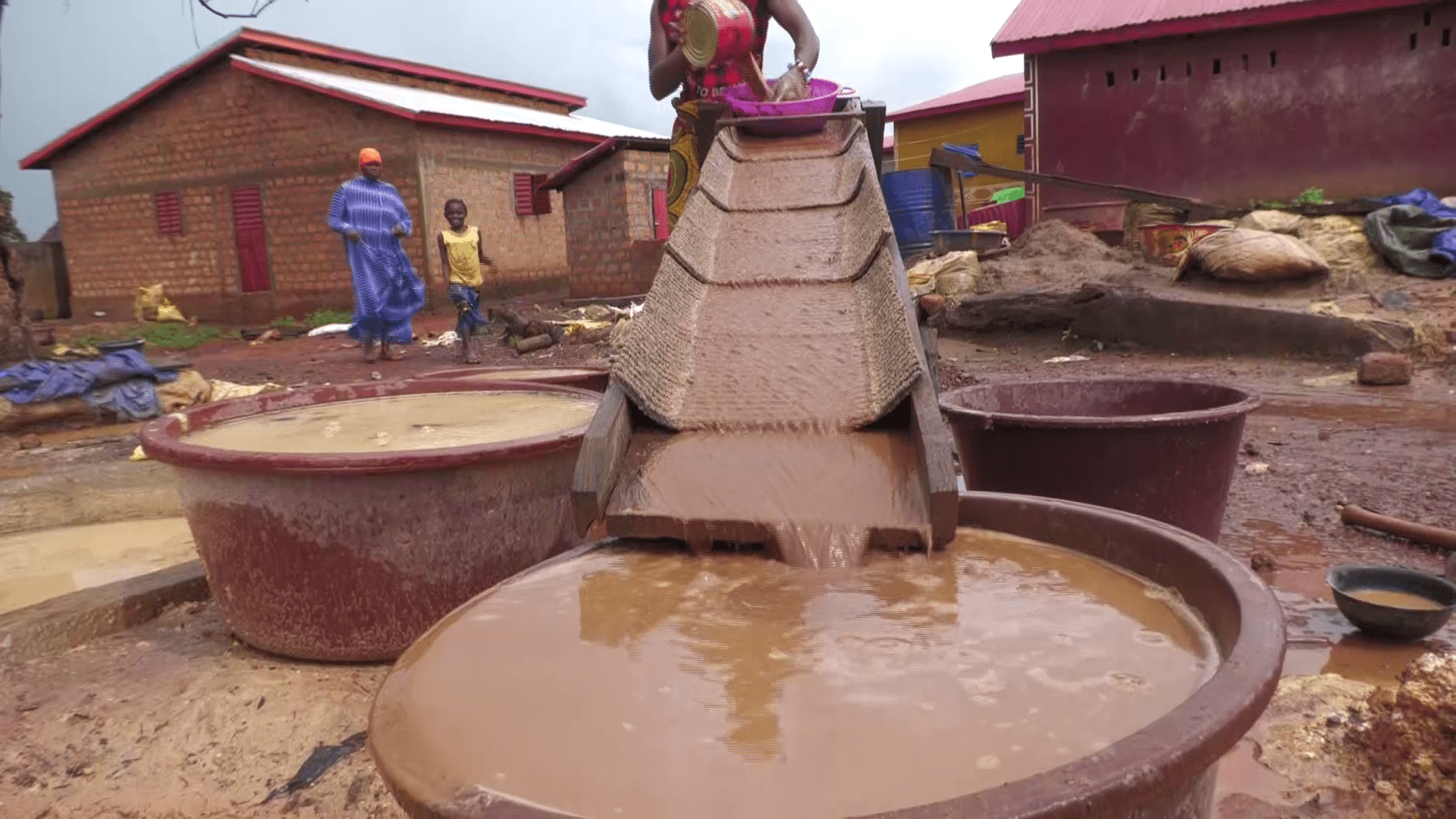The sub-prefecture of Kodiaran, 25 kilometers from Mandiana, is an agropastoral and mining locality. With an estimated population of around 45,000, the main activity of the women in this rural commune is artisanal mining.
Here and there, in the heart of the village, women can be seen washing minerals using a system known in the local language as "yirini" to ensure their empowerment. Nearby, the children play marbles while observing their mothers in what has become a daily task for them. According to Minata Keita, a working mother, it takes a lot of effort to obtain these minerals.
"We go to artisanal gold mines located miles away to look for these ores. I must admit that it's not easy for us, because we have to work hard to get it. We help the men to pull the rope in the very long shafts for days. Then we transport them to the village on tricycles, but sometimes if we don't have money, we carry them on our heads", she explains.
M'mahawa Konaté is 15 years old. She has never been to school or learned to trade. To meet her daily needs, she is forced to engage in this harsh ordeal.
"I don't go to school and I don't have a trade. It's thanks to this activity today that I manage to have some money to buy clothes and many other things. My parents don't have the means, so I have to fight to support them and take care of myself," she said.
Despite the dedication of these women, some of them work at a loss. After all, a vast amount of washed waste contains no gold, and most of the money earned is spent on survival.
"There are times when we work for nothing. But that doesn't discourage us at all, because we live by this activity. Sometimes we use dabas to dig in places in the center of the village here and wash so that we can have daily earnings and cook for our children. We're aware that this has an impact on our health and the environment, but there's nothing we can do," says Mariam Camara.
Another ordeal faced by these women is the unbearable fatigue, sometimes leading to health problems. As Saran Konaté explains: "We provide enough energy to transport our ores to the village, and then there's the fatigue from the work we do here in the village. We fall ill because of the distance we travel, and the money we earn is used for our treatment. We do this work because we have no other source of income.
Artisanal gold mining plays an important role in the daily lives of communities in the Upper Guinea region. But beyond its profitability, it has harmful consequences on the safety and fundamental rights of people, particularly women and children, as well as on the environment.

